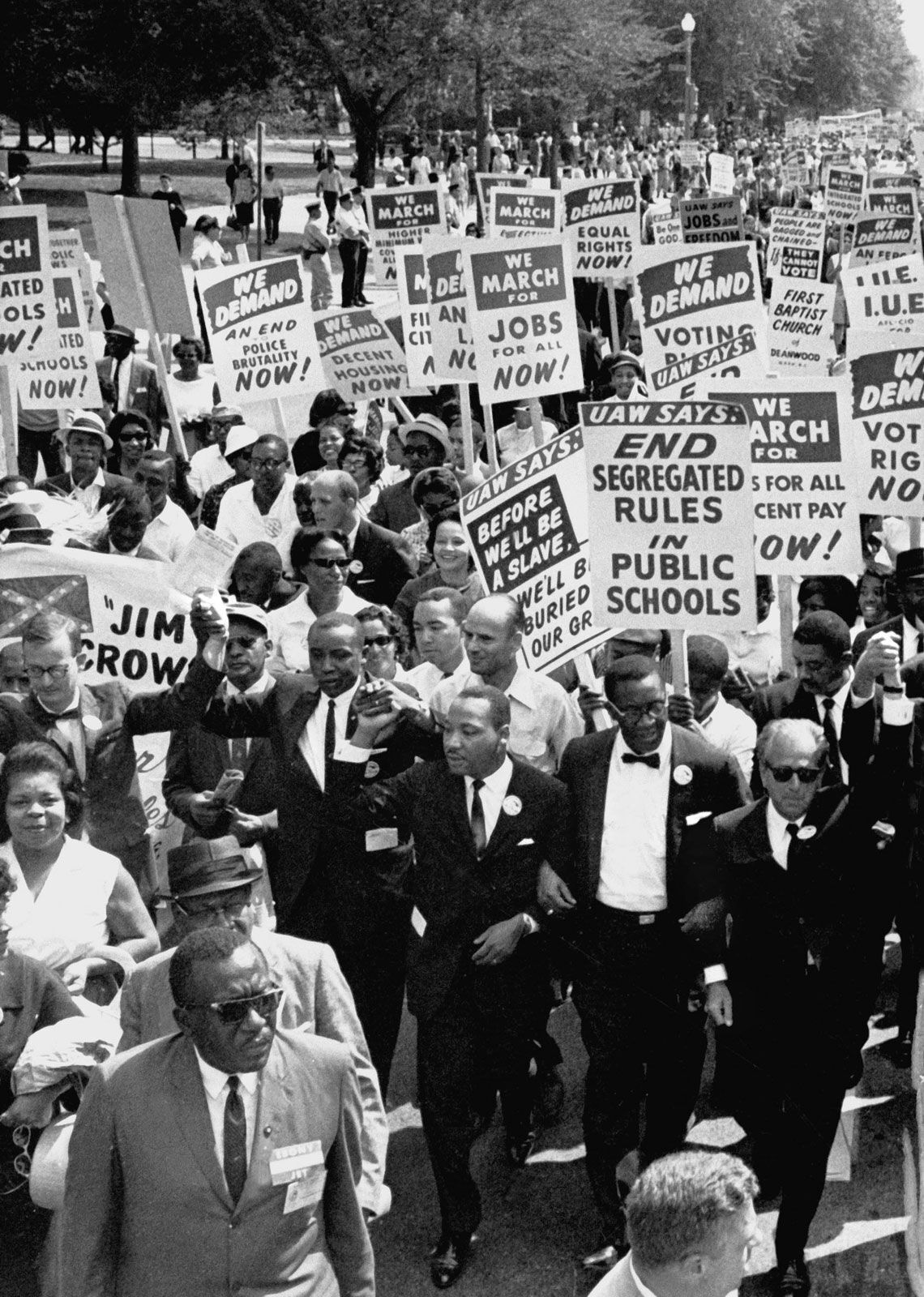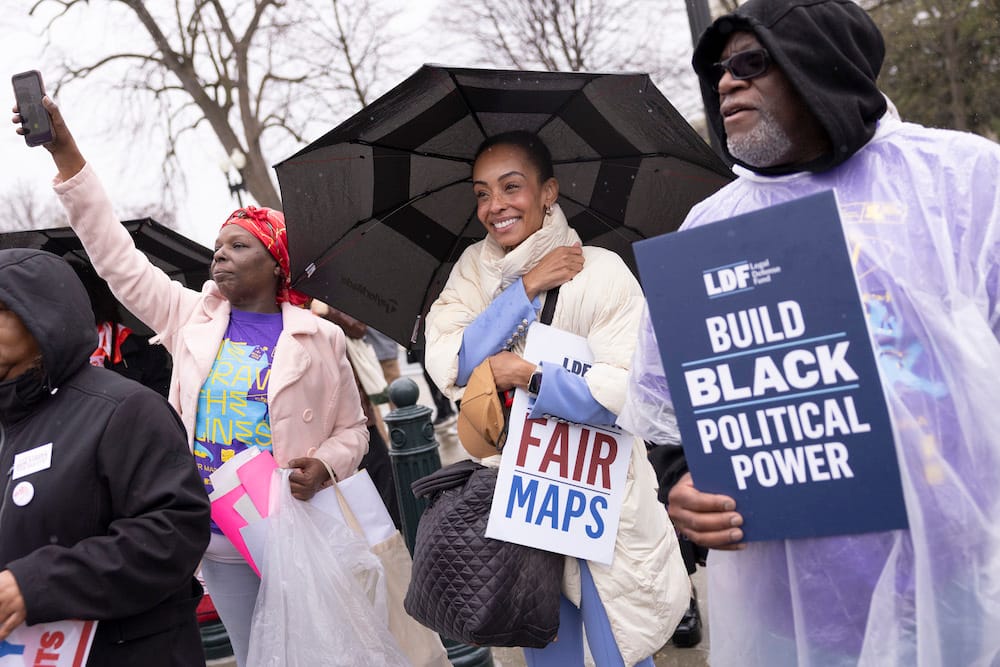- BlackVoter.Org
- Posts
- BlackVoter.Org
BlackVoter.Org


In a stark response to rising political tensions, Louisiana Democratic Party Chairman Randal Gaines condemned "right-wing extremism" after the party headquarters was vandalized with the word "murderers" just two days following the assassination of conservative activist Charlie Kirk. While the accused shooter isn't affiliated with any political faction, Gaines pointed to an increasingly hostile climate that fuels violence.
“This vandalism is a horrible act,” he remarked, emphasizing the urgent need for community vigilance against such threats. To bolster security, the party plans to install surveillance cameras and improve safety measures at their headquarters.
Gaines’s message serves as a rallying cry for fostering a less hostile political environment, urging unity and action against the hate that threatens to escalate into violence. As the political landscape continues to heat up, the call for de-escalation and protective measures has never been more critical.

Of course! Please provide the article or its key details, and I’ll craft an engaging summary for you.

The American civil rights movement was a transformative force in U.S.
history, pivoting from the nonviolent efforts of leaders like Martin Luther King Jr. to the more militant sentiments embodied by figures like Malcolm X and the Black Panther Party.
As the struggle for racial equality evolved, the movement embraced various ideologies, ranging from traditional civil rights to the bold assertion of "Black power," emphasizing political, cultural, and economic autonomy. King's assassination in 1968 catalyzed further unrest, leading to increased government repression of radical groups and persistent inequality despite legislative gains.
The movement's legacy continued through the 21st century, marked by the rise of the Black Lives Matter movement in response to ongoing police violence and systemic racism. High-profile incidents of brutality intensified public outrage, driving diverse communities to unite under the fight for justice and equality, revealing both progress made and significant challenges that remain today.

On September 15, history holds powerful tales of triumph and tragedy in the United States. In 1789, the Department of State emerged, kickstarting American diplomacy.
Fast forward to 1862, and Confederate forces, led by Stonewall Jackson, secured a major victory at Harpers Ferry, capturing over 12,500 Union soldiers. A significant shift occurred in 1950 during the Korean War when General Douglas MacArthur launched the audacious Inchon Landing, altering the war's course.
However, this date is also marked by sorrow—1963 saw the horrific bombing of the 16th Street Baptist Church in Birmingham, claiming the lives of four young girls amidst the civil rights struggle. Finally, in 2008, the fall of Lehman Brothers sent ripples through global economies, leading to a financial crisis.
Each September 15th reminds us of the complexity of America's journey through resilience and loss.

The upcoming Supreme Court case, Louisiana v. Callais, epitomizes the ongoing struggle for fair representation of Black voters in Louisiana.
Scheduled for reargument on October 15, 2025, this pivotal case examines Louisiana's congressional map, particularly its compliance with the Voting Rights Act (VRA) and the Constitution's Equal Protection Clause. Following years of litigation, Louisiana was mandated to create a map with two majority-Black districts to reflect the state's demographic realities.
However, opponents claim the new map constitutes a racial gerrymander, questioning its constitutionality. This case not only impacts Louisiana but has the potential to reshape redistricting laws across the U.
S. as well.
As organizations and voters rally for equitable representation, the stakes couldn't be higher: the outcome may redefine the future of voting rights and democracy for communities nationwide.

Meet Lisa Cook, the trailblazing Federal Reserve Governor at the heart of a surprising legal battle with former President Donald Trump. Appointed in 2022 by President Biden, Cook made history as the first Black woman in this role.
However, her tenure has been overshadowed by Trump's unprecedented attempt to fire her amid ongoing controversies, including allegations of mortgage fraud, which Cook and her legal team vehemently deny. A federal judge sided with Cook, temporarily blocking Trump's actions, while the Justice Department appeals the ruling.
As the Federal Open Market Committee prepares for a crucial meeting, Cook's case raises critical questions about independence within the Federal Reserve and the intersection of politics with monetary policy. With this high-profile battle unfolding, all eyes are on Cook and the implications her situation carries for the future of the Fed and its governance.

Dive into the captivating world of women’s history with the U.S.
National Park Service, where narrative diversity reveals the vital roles women have played in shaping our nation. From the immigrant textile workers of Lowell National Historic Park to the courageous shipyard women of World War II, every park tells stories of ordinary and extraordinary women.
You'll learn about Native American matriarchs fostering trade and peace, groundbreaking politicians like Abigail Adams, and trailblazers such as Harriet Tubman and Madam C.J.
Walker, each fighting for equality and justice. This rich tapestry of experiences illustrates how women, regardless of background, have influenced society and contributed uniquely to American history.
Join the journey to uncover these often-overlooked narratives and celebrate the powerful legacy of women in every facet of life.

The Voting Rights Act (VRA), signed into law on August 6, 1965, marked a monumental triumph in the civil rights movement, offering critical protections against racial discrimination in voting. However, this landmark legislation is currently under threat as Republican-led efforts seek to dismantle its safeguards.
The article traces the long, arduous fight for Black voting rights—from Reconstruction's initial hopes to the disenfranchisement tactics that emerged in the late 19th century. Activists tirelessly challenged these barriers, leading to pivotal court victories and massive mobilizations in the 1960s.
A watershed moment came when images of violence against peaceful marchers in Selma galvanized national support for the VRA, which instituted federal oversight of states with discriminatory practices. Yet, the 2013 Supreme Court ruling in Shelby v.
Holder weakened these protections. Today, as setbacks persist, the enduring lesson of the VRA emphasizes resilience in the struggle for equality and voting access.